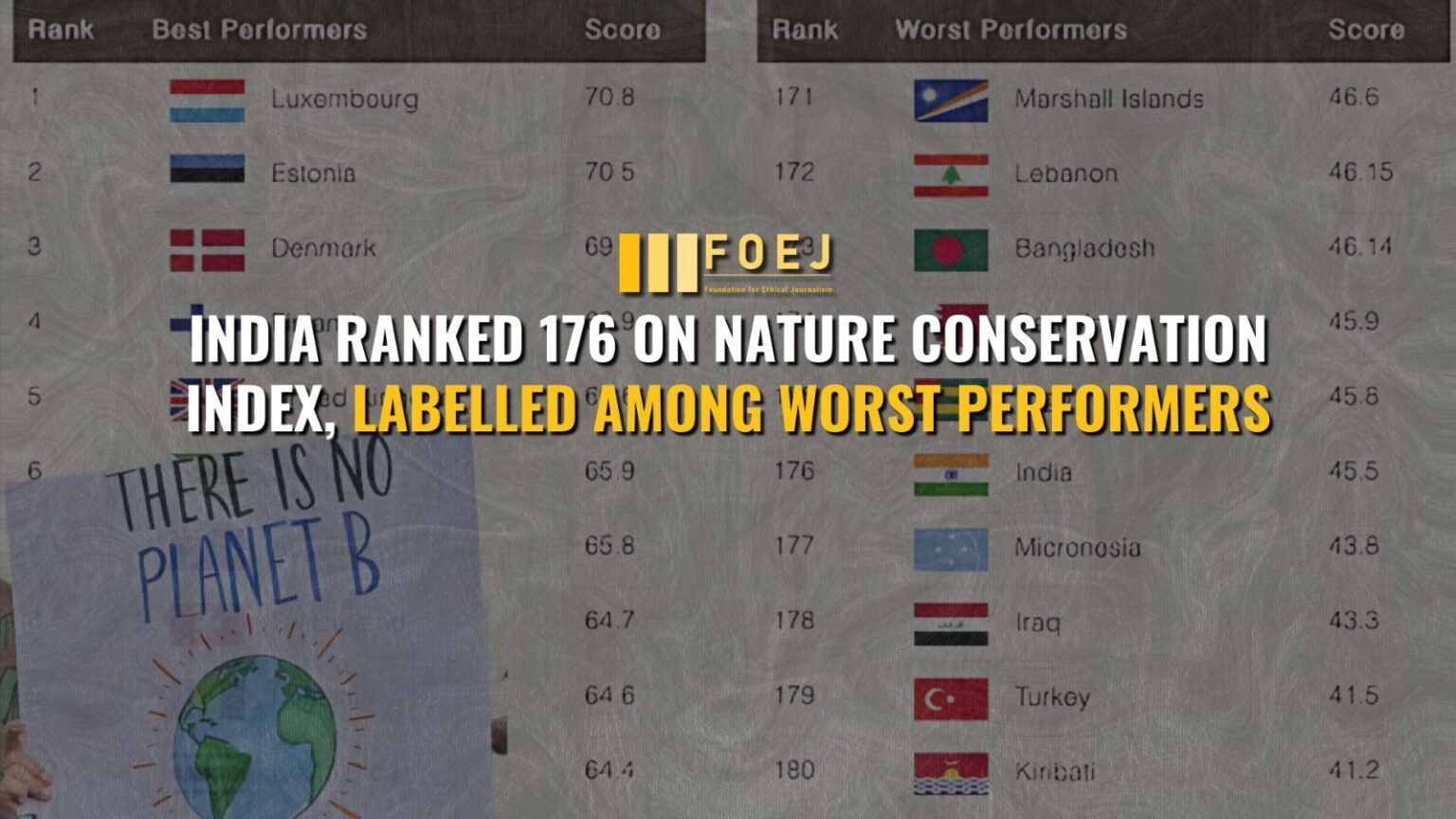With a score of 45.5 out of 100, India has been ranked 176th in the Global Nature Conservation Index, 2024. The country has been ranked as one of the first worst performers along with Kiribati (180), Turkey (179), Iraq (178) and Micronesia (177) in the ranking of 180 countries released October 24, 2024.
Launched in October, the first ever nature Conservation Index (NCI) evaluates conservation efforts using four markers— land management, threats to biodiversity, capacity and governance, and future trends.
What is NCI?
The NCI is a data driven analysis developed by Goldman Sonnenfeldt School of Sustainability and Climate Change at Ben-Gurion University of the Negev and BioDB.com
The analysis examines each country’s progress in balancing conservation and development, providing insights to help governments, researchers, and organizations identify issues and strengthen conservation policies for long-term biodiversity protection.
“You can’t manage what you can’t measure — so the saying goes. With that in mind, we created the Nature Conservation Index (NCI) which is an unbiased, straightforward tool designed to show how well countries handle conservation challenges,” Yaron Ziv from Goldman Sonnenfeldt School of Sustainability and Climate Change, Ben-Gurion University of the Negev, said.
India’s low ranking is primarily due to ineffective land management and increasing threats to its biodiversity.
The report stresses India’s need for regulations that promote sustainable development, increased funding for environmental preservation, and effective conservation measures, backed by strong leadership and commitment from policymakers.
The report emphasises India’s need to enact regulations that support sustainable development, allocate funds for environmental preservation, and implement efficient conservation measures with the strong leadership and dedication of policymakers.
Why are Sustainable Land Use Practices Crucial?
Sustainable land use practices are crucial as 53 percent of land is converted for urban, industrial, and agricultural use. The index highlights high pesticide usage and warns of soil pollution. With a sustainable nitrogen index of 0.77, it stresses the need to address soil pollution to preserve soil health.









